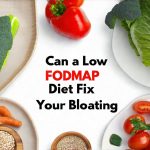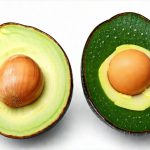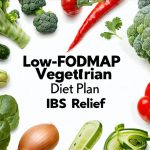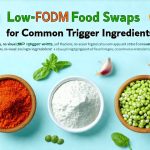Many individuals experience digestive discomfort – bloating, gas, abdominal pain, diarrhea, or constipation – after eating certain foods. For some, these symptoms are linked to Fermentable Oligosaccharides, Disaccharides, Monosaccharides and Polyols (FODMAPs). These short-chain carbohydrates aren’t inherently bad; in fact, they serve as food for beneficial gut bacteria. However, in people with sensitive digestive systems – often those diagnosed with Irritable Bowel Syndrome (IBS) – these FODMAPs can ferment excessively in the large intestine, leading to uncomfortable symptoms. Managing FODMAP intake is a common strategy for alleviating IBS symptoms, but it’s not always straightforward and can be quite restrictive, potentially impacting nutritional status if done improperly without guidance from a healthcare professional.
The core of FODMAP management often revolves around dietary restriction, identifying trigger foods through an elimination diet followed by strategic reintroduction. However, the idea of actively helping the body break down these carbohydrates before they reach the large intestine has gained traction, leading to the widespread availability and use of enzyme blends marketed specifically for this purpose. These supplements typically contain enzymes like alpha-galactosidase (for breaking down galacto-oligosaccharides), lactase (for lactose digestion), invertase (for sucrose breakdown) and sometimes others targeting fructose or polyols. The question remains: do these enzyme blends truly help with FODMAP digestion, and are they a worthwhile addition to a low-FODMAP strategy? This article will explore the science behind these supplements, their potential benefits, limitations, and how to approach them thoughtfully.
Understanding Enzyme Blends & Their Mechanisms
Enzyme blends designed for FODMAP reduction aim to mimic the digestive processes that may be lacking or insufficient in individuals with sensitivities. Our bodies naturally produce enzymes to break down food, but sometimes production isn’t optimal, or the specific enzymes needed for certain FODMAPs are deficient. The theory is that by supplementing with these enzymes before consuming a meal containing FODMAPs, you can pre-digest some of those carbohydrates in the small intestine, reducing the amount reaching the colon and minimizing fermentation. This could potentially lessen bloating, gas, and other digestive symptoms. It’s important to remember though, this isn’t about eliminating FODMAPs entirely; it’s about improving tolerance and expanding dietary options.
The effectiveness hinges on several factors. Firstly, timing is crucial. Enzymes need to be taken with the first bite of food to be most effective, as they begin working in the upper digestive tract. Secondly, the specific enzymes included must correspond to the FODMAPs present in the meal. A blend targeting lactose won’t help with galacto-oligosaccharide digestion, for example. Lastly, the dosage and quality of the enzyme supplement matter significantly; products vary widely in their potency and formulation. It’s also essential to recognize that these enzymes are most effective on free FODMAPs – those not bound within the structure of whole foods. Breaking down a complex carbohydrate in a whole food is far more challenging than breaking down a simple sugar already present as a free molecule.
The science behind enzyme supplementation for FODMAPs is still evolving. Some studies have shown modest benefits, particularly with alpha-galactosidase for reducing galactan fermentation and associated gas production. Lactase supplements are well established for lactose intolerance, but their impact on overall FODMAP symptoms can vary. However, many studies are small or have methodological limitations, making it difficult to draw definitive conclusions about broad effectiveness across all individuals and FODMAP types. It’s also worth noting that enzyme blends aren’t a cure-all; they often work best as part of a broader low-FODMAP management plan guided by a registered dietitian. Understanding enzyme deficiency is the first step toward better digestion.
The Role of Alpha-Galactosidase
Alpha-galactosidase is arguably the most studied enzyme in relation to FODMAP digestion. It specifically targets galacto-oligosaccharides (GOS) and raffinose, found in foods like beans, lentils, cabbage, broccoli, and Brussels sprouts. These carbohydrates are notoriously difficult for many people to digest due to a lack of naturally produced alpha-galactosidase in the small intestine. When undigested, they reach the colon where bacteria ferment them, producing gas as a byproduct.
- Alpha-galactosidase works by breaking down these complex sugars into simpler, more easily digestible components before reaching the colon.
- Studies have demonstrated that supplementing with alpha-galactosidase can significantly reduce flatulence and bloating associated with bean consumption in individuals prone to these symptoms.
- However, it’s important to note that effectiveness can vary depending on individual gut microbiome composition and sensitivity levels. Some people may find significant relief while others experience little or no benefit. The amount of GOS consumed also impacts the effect; larger portions might overwhelm even a generous enzyme dosage.
It’s crucial to understand that alpha-galactosidase is not a substitute for proper food preparation techniques. Soaking and sprouting beans can reduce their GOS content naturally, making them more digestible even without supplementation. Combining this with an enzyme supplement may offer further relief for highly sensitive individuals. Furthermore, the efficacy of different brands of alpha-galactosidase supplements can vary due to differences in enzyme concentration and formulation. Consider top lifestyle shifts for improving overall digestive health.
Lactase & Its Limitations in FODMAP Management
Lactase is well known as the enzyme needed to digest lactose, the sugar found in dairy products. For people with lactose intolerance – a common condition where the body doesn’t produce enough lactase – supplementing with lactase allows them to consume dairy without experiencing digestive upset. However, its role in broader FODMAP management is more nuanced. While lactose itself is a FODMAP, it’s often one of the easier FODMAPs for people to tolerate in small amounts compared to GOS or fructans.
- Lactose intolerance doesn’t always equate to general FODMAP sensitivity. Some individuals can manage lactose while struggling with other FODMAPs.
- Taking lactase supplements can be extremely effective for those specifically diagnosed with lactose malabsorption, allowing them to enjoy dairy products that would otherwise cause symptoms.
- However, relying solely on lactase won’t address issues related to other FODMAPs. Someone sensitive to fructans will likely still experience symptoms even after taking a lactase supplement before consuming a lactose-containing food.
The key distinction is that lactose intolerance is a specific enzyme deficiency, while FODMAP sensitivity is often more complex and multi-faceted, involving sensitivities to multiple carbohydrates and individual variations in gut microbiome composition. Lactase supplementation should be targeted towards individuals with confirmed lactose malabsorption, not treated as a general FODMAP solution. Managing bowel transit time can also alleviate some digestive discomfort.
Fructose & Polyol Digestion: Challenges and Research
Fructose and polyols (sorbitol, mannitol, xylitol) represent more complex challenges for enzyme-based digestion. While enzymes like invertase can break down sucrose (a disaccharide containing fructose), free fructose is often poorly absorbed in the small intestine, even with enzymatic assistance. This malabsorption leads to fermentation in the colon and associated symptoms. Similarly, polyols are notoriously difficult to digest due to a lack of specific enzymes for their breakdown.
- Research on enzyme supplementation specifically targeting fructose or polyol digestion is limited and inconclusive.
- Some products claim to contain enzymes that enhance fructose absorption, but evidence supporting these claims is weak. The issue isn’t necessarily the lack of an enzyme; it’s often the body’s limited ability to transport fructose across the intestinal wall.
- Polyols are even more problematic because they are often poorly absorbed regardless of enzymatic assistance. Their sweetness also encourages overconsumption, exacerbating symptoms.
For individuals sensitive to fructose or polyols, strict dietary restriction remains the most effective management strategy. Enzyme blends may offer minimal benefit and should not be relied upon as a primary solution. Focusing on identifying and avoiding high-fructose/polyol foods is generally more impactful than attempting enzymatic digestion. The low-FODMAP diet emphasizes careful label reading to identify hidden sources of these carbohydrates in processed foods, further reinforcing the importance of dietary awareness. Stress can also affect enzyme production and digestion.
Ultimately, enzyme blends can be a valuable tool for some individuals managing FODMAP sensitivities but they are not a universal solution. They should be approached thoughtfully, with realistic expectations and ideally under the guidance of a healthcare professional. Understanding which FODMAPs trigger symptoms and tailoring enzyme supplementation accordingly is crucial. Remember that dietary modification remains the cornerstone of FODMAP management, and enzyme blends should be considered an adjunct to – not a replacement for – this approach. Inflammation can also play a role in digestive issues, making it important to address overall gut health. Finally, consider how enzyme deficiencies might relate to conditions like celiac disease.


















